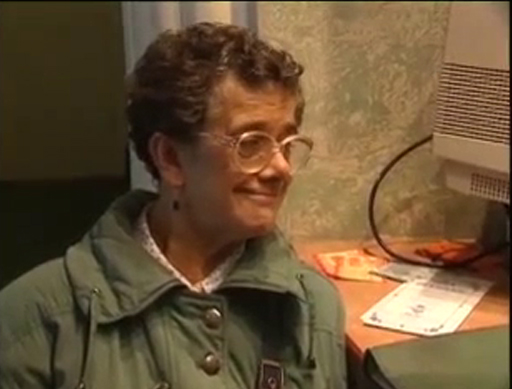1 Caring relationships
It is known that people with learning disabilities need support from other people. But what may surprise you is that people with learning disabilities can also be carers, providing support to their friends, partners, parents and children.
Activity 1 Relationships in the institutions
Watch this film about Gloria Ferris and Muriel Mussett. Gloria and Muriel met when they both lived in St Lawrence’s institution and their relationship continued when they moved into the community. Afterwards fill in the table below.

Transcript: Video 2
| Terms that Gloria uses to describe her relationship with Muriel | Tasks that Gloria helped Muriel with | Things that made Gloria and Muriel’s relationship difficult after Muriel left the institution |
|---|---|---|
Discussion
| Terms that Gloria uses to describe her relationship with Muriel | Tasks that Gloria helped Muriel with | Things that made Gloria and Muriel’s relationship difficult after Muriel left the institution |
|---|---|---|
|
|
|
The one term that Gloria doesn’t use to describe her relationship with Muriel is that of ‘carer’. This is despite the fact that Gloria was very involved in Muriel’s care in the institution – and after. You may have been surprised to learn that people like Gloria had caring roles in the institutions. However, it has been argued that institutions were only economically viable because some people with mild or moderate learning disabilities did unpaid work when they lived there.
Watching the video you can see that Gloria didn’t resent taking on this role of ‘carer’ – indeed she was very happy to care for Muriel in this way. But the film also shows that the relationship between them was not only about caring. Gloria says ‘it’s both ways’, suggesting that the two women became good friends. Gloria also talks about being ‘like a mother’ to Muriel, suggesting their relationship was deeply felt.
While most people with learning disabilities were very happy about being moved into the community, it did present difficulties for friendships. Gloria and Muriel spent much less time together after leaving St Lawrence’s. Very sadly, other people completely lost touch with their friends after leaving the institutions.
